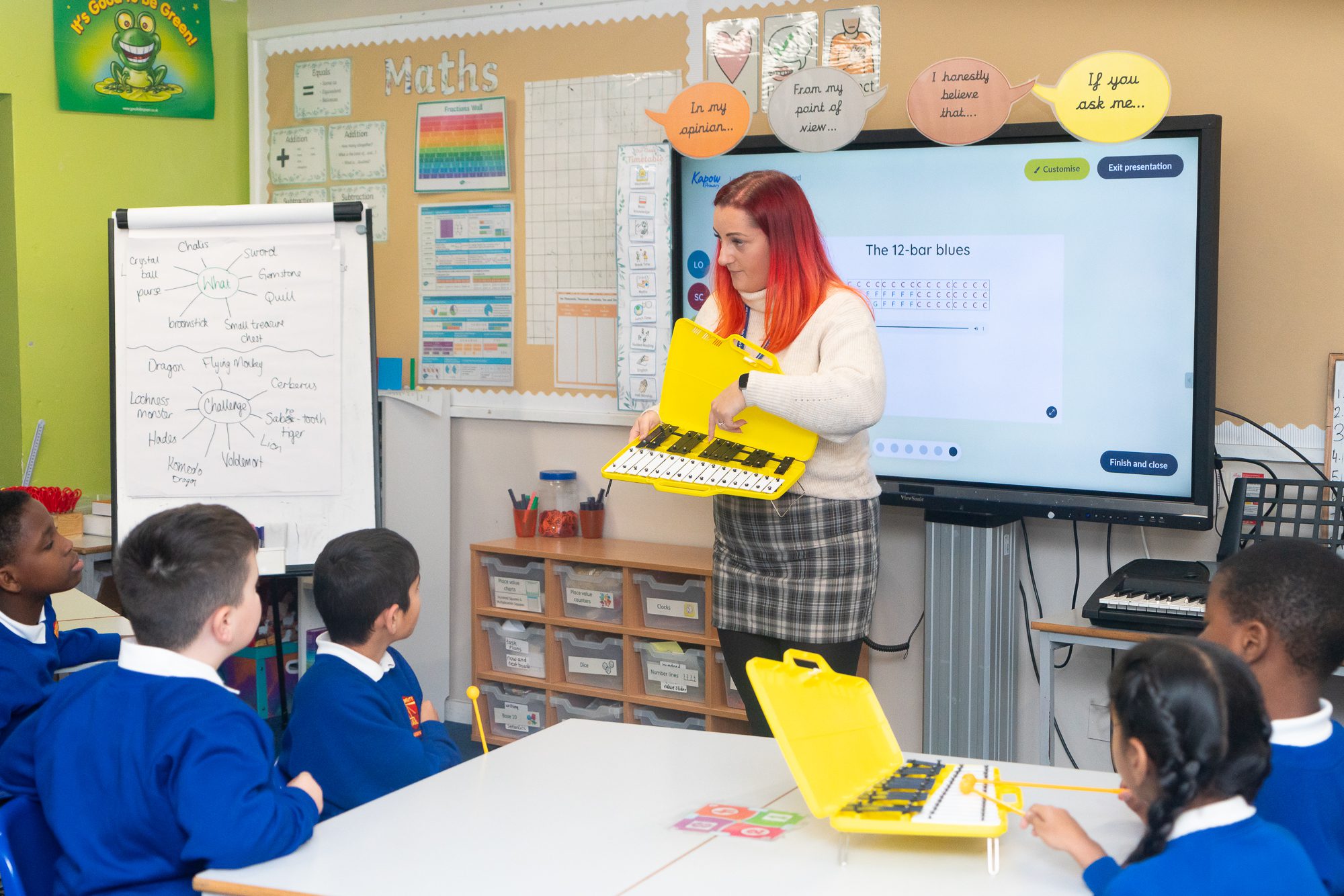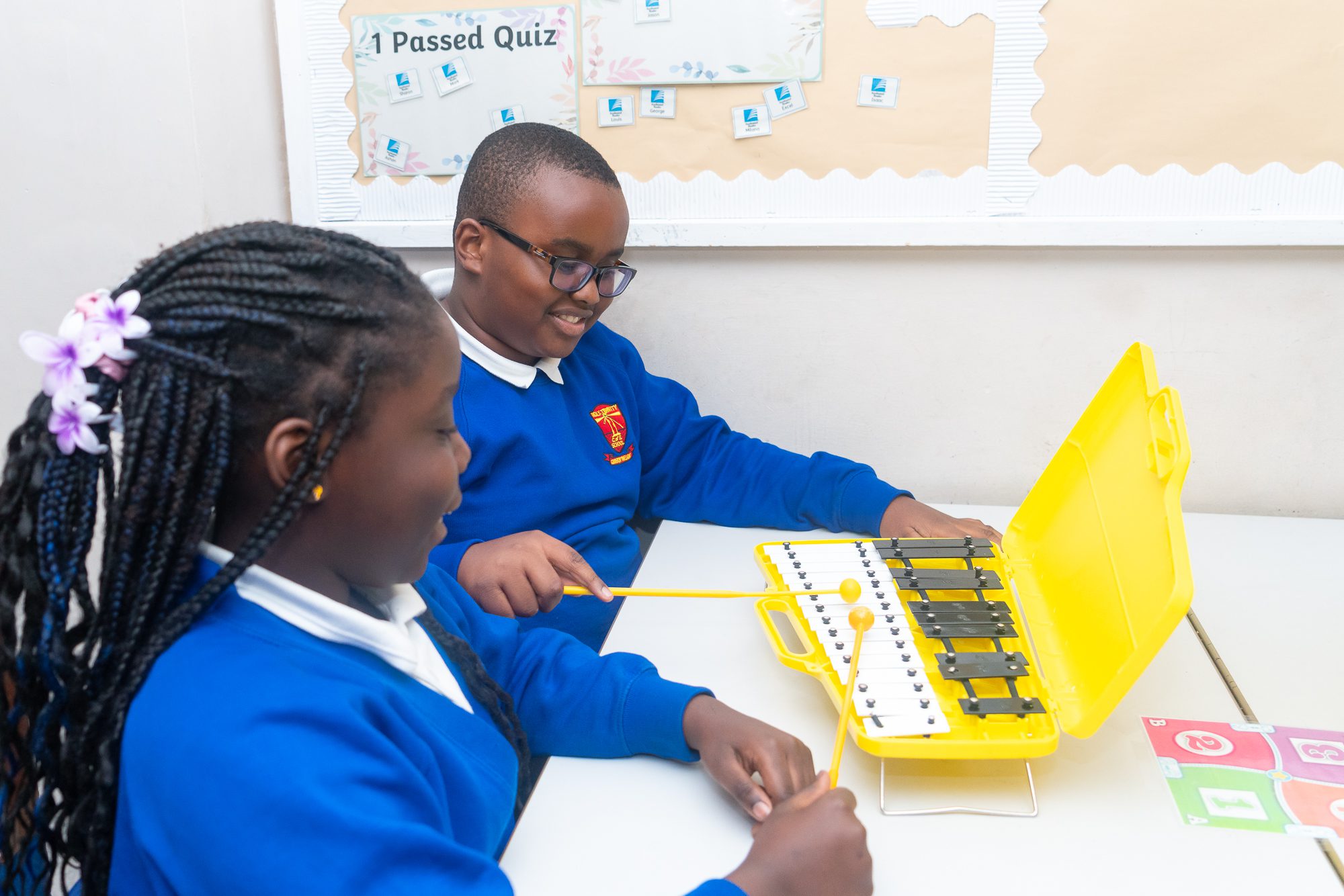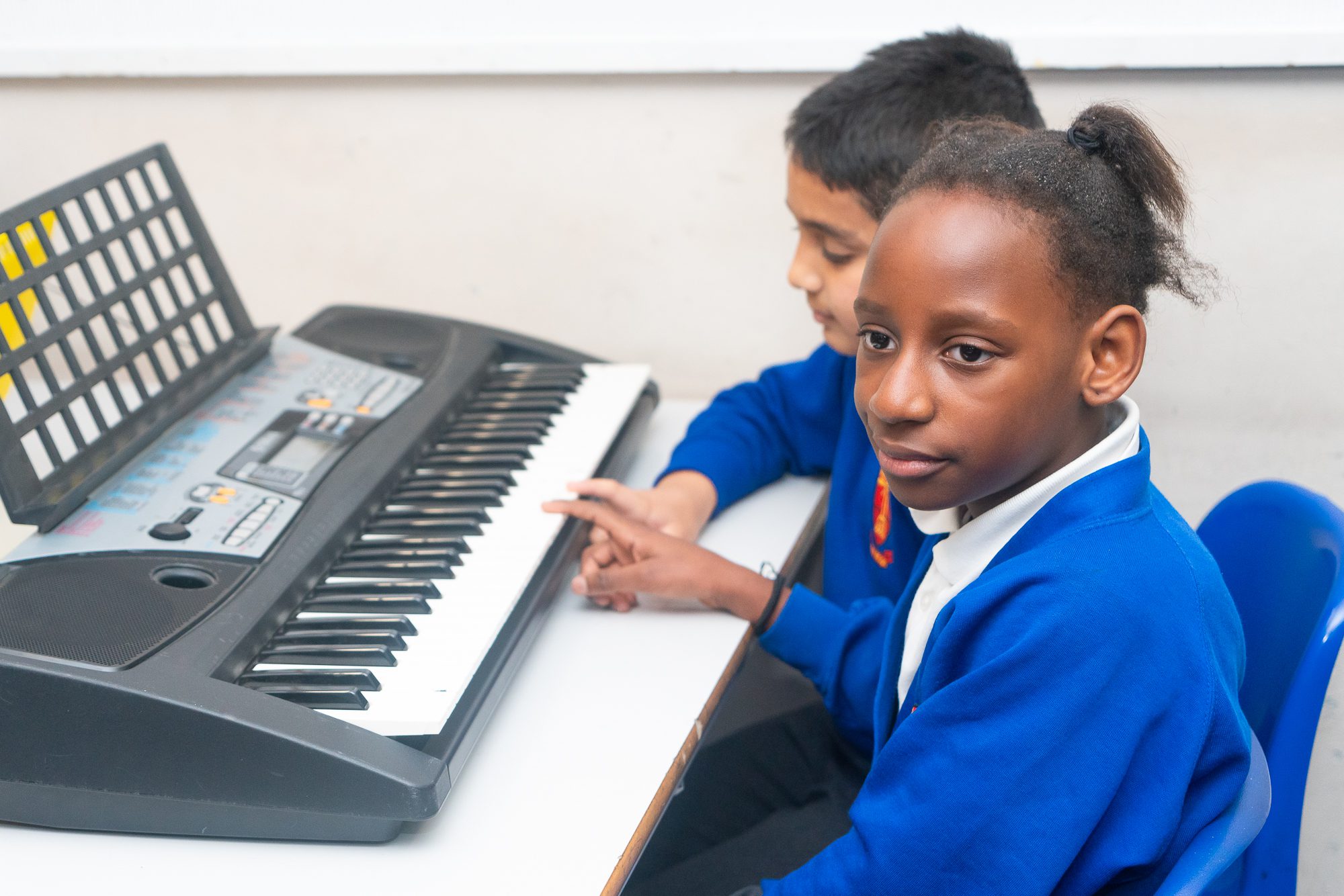Music Subject Leader: Ms K Argent
Welcome to our Music page. At Holy Trinity, we believe that music brings joy, creativity and confidence to every child. Whether it is singing in worship, performing in a choir, or playing in a band, our pupils are immersed in rich musical experiences from Reception to Year 6.
For any more information on Holy Trinity’s Music Curriculum, please contact Mrs Argent.
![Music-Mark-logo-[RGB]](https://www.holytrinity-gravesend.kent.sch.uk/wp-content/uploads/2024/02/Music-Mark-logo-RGB-300x300.jpg)
Intent
Our vision is for all children to enjoy music through singing, playing and composing. We want them to develop skills in listening, performing and understanding music, and to take part in inclusive opportunities, regardless of background or ability. We celebrate each child’s progress from Early Years to Year 6, encouraging them to experience music from a wide range of cultures and styles, from classical to pop.
The music curriculum follows the national Model Music Curriculum and is taught using the award-winning Charanga scheme. This ensures that pupils receive a high-quality, structured and engaging programme of study that nurtures their love of music.


Implementation
At Holy Trinity, children enjoy weekly music lessons which focus on singing and vocal games, playing instruments such as glockenspiels and drums, and learning to read and write simple musical notation. They listen to a wide range of musical styles and have opportunities to improvise and compose their own music.
Music is also embedded beyond classroom learning. Pupils can take part in Rocksteady Band Lessons, where they learn guitar, drums, keyboard, bass or vocals in a real band setting. Our choir performs at school and local events, while instrumental lessons provide one-to-one tuition with specialist tutors. We also offer a rotating range of music clubs and ensembles to cater to different interests.
Music is celebrated throughout the school year. Daily whole-school Singing Worship brings the community together in song. Year group performances mark key moments in the calendar, including Christmas, Easter and the Year 6 leavers’ productions. Our pupils take part in Young Voices at the O2 Arena, a large-scale choir event, and perform in Rocksteady concerts for families three times a year. They also share their talents through talent shows and community singing at care homes, hospitals and church events.
We work in close partnership with Kent & Medway Music Hub, Rocksteady Music School and Gravesham Music Centre at Mayfield Grammar. These partnerships bring specialist teaching, training and a wealth of performance opportunities for our children.
Impact
Through our music provision, children develop the key skills of listening, performing, composing and reading musical notation. They learn to appreciate and identify music from different historical periods and cultures, and they gain confidence and pride through performing in school and in the wider community.
By the time they leave Holy Trinity, pupils will have experienced the joy of making music and the sense of achievement it brings. They will be prepared to continue and develop their musical learning in the next stage of their education.
Looking ahead to 2025–26, we will continue to expand our provision by offering more workshops with visiting musicians, increasing the number of KS1 clubs and choirs, using Kent Music funding to support teacher training, and celebrating musical learning through more frequent class performances.

Music in Each Stage
In EYFS, music is taught expressively through other subjects and through a music based lesson. Children will learn a range of songs by memory and perform together. Children are taught to match instruments to their sounds, and use technical vocabulary to describe music. They clap rhythms and learn to move rhythmically, keeping time with music. They listen to a wide range of genres of music to develop an appreciation for the diversity and variety of music in the world.
Pupils are taught to use their voices expressively by singing songs and speaking chants and rhymes. They will play tuned and untuned instruments, listen with concentration and understanding to a range of high-quality live and recorded music and make and combine sounds using the inter-related dimensions.
Pupils will be able to play and perform in solo and ensemble contexts, using voice and playing instruments with increasing accuracy, control and expression. They will improvise and compose music using the interrelated dimensions of music separately and in combination. Pupils listen with attention to detail and recall sounds with increasing aural memory. They will be able to use and understand the basics of the stave and other musical notations, appreciate and understand a wide range of high-quality live and recorded music from different traditions, musicians and composers, and also develop an understanding of music history.
Music Progression
At Holy Trinity, we develop our pupil’s Musical understanding through essential skills; growing their depth of knowledge year after year.
SEND Information
Our SEND and disadvantaged pupils are given the necessary support in class to fully access the supported Music curriculum. Learning is adapted where necessary to support SEND/EAL pupils to give equal opportunities for all to be confident in approaching any problems faced. Interventions, support and challenges are constantly revised and adapted to ensure all children are supported in achieving learning. The above areas are robustly and continuously monitored to ensure any gaps in learning are addressed.

